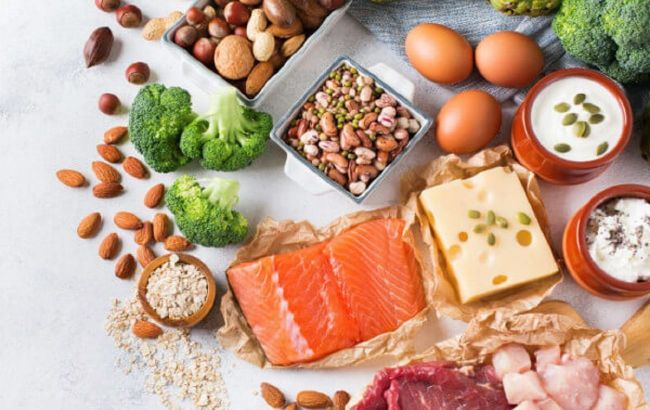How much protein is enough? Ukrainian dietitian breaks down the right amount
 Photo: How much protein an adult needs (Freepik)
Photo: How much protein an adult needs (Freepik)
Protein is a key element of a healthy diet that performs vital functions in the body: it builds muscles, tissues, enzymes, and hormones, and supports the immune system. However, not everyone knows what daily amount of protein is optimal for an adult. How to get protein from food and how much you need is explained by Ukrainian dietitian Oleh Shvets.
Recommended protein intake for a person
For most adults, the daily protein requirement ranges from 60 to 120 grams, depending on age, gender, weight, and level of physical activity. On average, a healthy person with a normal weight needs 1-1.6 grams of protein per kilogram of body weight.
Physically active individuals, athletes, pregnant women, and the elderly need more protein, up to 1.6 g/kg and even higher.
Why is protein important?
Protein helps to:
- Lose weight by reducing appetite and speeding up metabolism
- Build muscle, especially when combined with physical exercise
- Support the health of bones and tissues
- Prevent age-related changes, such as muscle loss
Is the danger of excess protein a myth?
Concerns about the harm of a high-protein diet, particularly its impact on the kidneys, currently lack scientifically proven evidence for healthy individuals. However, people with chronic kidney disease should consult a doctor before changing their diet.
How to get protein from food
Good sources include:
- Meat, fish, eggs, dairy products
- Plant-based alternatives: legumes, tofu, nuts, quinoa
- Vegan protein supplements
It is important to remember that 100 g of a product does not equal 100 g of protein. For example, a 200 g piece of meat contains about 60 g of protein, and one egg only 6 g.
Protein is not only a "building material" for muscles but also an important factor for long-term health. Avoid deficiency, choose quality sources, and maintain balance. These are simple steps toward better well-being and a stronger immune system.
This material is for informational purposes only and should not be used for medical diagnosis or self-treatment. Our goal is to provide readers with accurate information about symptoms, causes, and methods of detecting diseases. RBС-Ukraine is not responsible for any diagnoses that readers may make based on materials from the resource. We do not recommend self-treatment and advise consulting a doctor in case of any health concerns.

